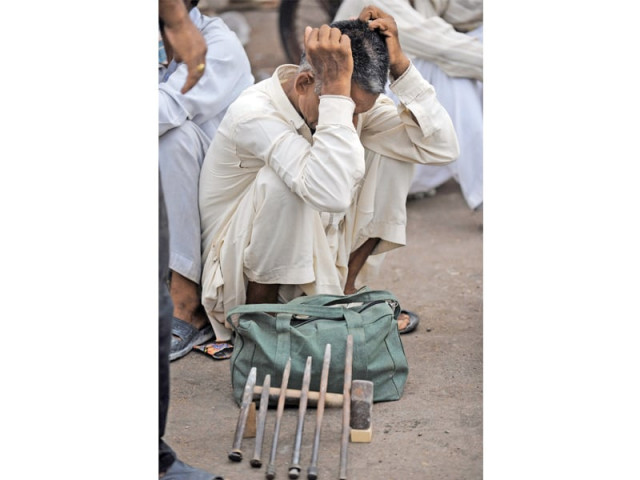
Although the real GDP has been growing, yet the output expansion is not providing gainful employment to the aspiring youth in the economy. This phenomenon is known as jobless growth.
Despite increase in the size of economy, joblessness acts as a binding constraint. There are certain factors associated with it.
Employment opportunities: ‘5,000 youth to be sent to the Gulf’
Despite persistent current account deficit, the focus of the government is on short-term capital inflows in the form of bilateral, multilateral and commercial borrowing. As a result, the foreign exchange reserves have increased from $18.7 billion to $23 billion in the last fiscal year, while the foreign debt increased from $54.6 billion to $61.4 billion during this period.
This implies that the rush to growth and enhanced foreign exchange reserves has been financed by external debt.
The economic policy-making is centred on the sensitivity and sentiment of financial markets. It revolves around corporate-led growth model since the early 1990s and efforts have been made to create an environment conducive to private-sector investment.
Although the corporate sector does grow to some extent, yet the ever increasing informality in the economy is acting as a drag on this sector. The growth of informal sector is also creating ‘congestion’ in urban and semi-urban areas of Pakistan.
The simplest example of this congestion is traffic congestion which gives rise to late arrival of men and material. The other form of congestion could be frequent disruption in electricity, gas and water supplies, which act as inputs for businesses and distort the timely delivery schedule.
The congestion resulting from growing informality lowers the productivity of corporate sector. The lower productivity cannot create gainful employment for the educated youth, meaning that level of corporate employment has been on the decline.
That is the reason aspiring MBAs even from decent business schools are not getting desired job opportunities. In other words, the situation has created an oversupply of business graduates. The ultimate refuge for these graduates is the informal sector.
Fewer jobs for Pakistanis in Middle East
Choice, selection of projects
Our multi-party democratic politics has become competitive with the passage of time. The focus of political parties is on short-term electoral gains. The lingering fear of losing the election battle is a deciding factor in the choice and selection of projects.
Most of the conceived projects are with frontloaded returns in the democratic politics. On this basis, thermal power plants on furnace oil were conceived and implemented in the early 1990s. Initially, the projects ran successfully owing to lower crude oil prices. To what extent, these power plants provide affordable electricity is in front of us.
Fast forward, by following the same logic, thermal power plants on coal are being conceived and implemented in order to quickly fix the long-run structural problem.
The energy mix is heavily tilted to thermal means which may contribute to balance of payments crisis owing to higher import content at frequent intervals.
Due to the long-term nature of hydroelectric power projects, less attention has been paid to these projects in the democratic politics as they entail frontloaded costs and backend returns.
Similarly, visible taxi and tractor schemes, flamboyant motorways and expressways, ostentatious metros and trains, circuitous flyovers and underpasses have gathered the attention of political parties.
In a nutshell, all these modern infrastructure projects without integrated planning would generate huge economic, political and social cost in the long run.
All parties are trying to gain the maximum mileage out of a political term to appease the masses. Regardless of the structural problems, the parties focus on short-term gains at the expense of long-term losses. Therefore, the spectre of jobless growth would keep on haunting the democratic politics in years to come.
The writer is the Assistant Professor of Economics at Suleman Dawood School of Business, Lahore University of Management Sciences
Published in The Express Tribune, September 12th, 2016.
Like Business on Facebook, follow @TribuneBiz on Twitter to stay informed and join in the conversation.

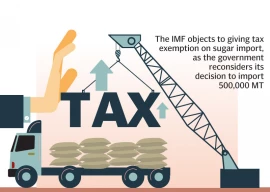




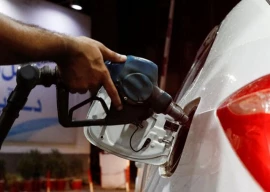







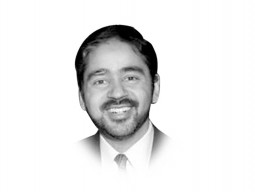
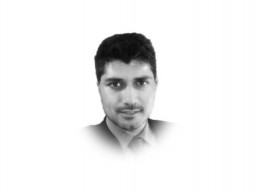


COMMENTS
Comments are moderated and generally will be posted if they are on-topic and not abusive.
For more information, please see our Comments FAQ